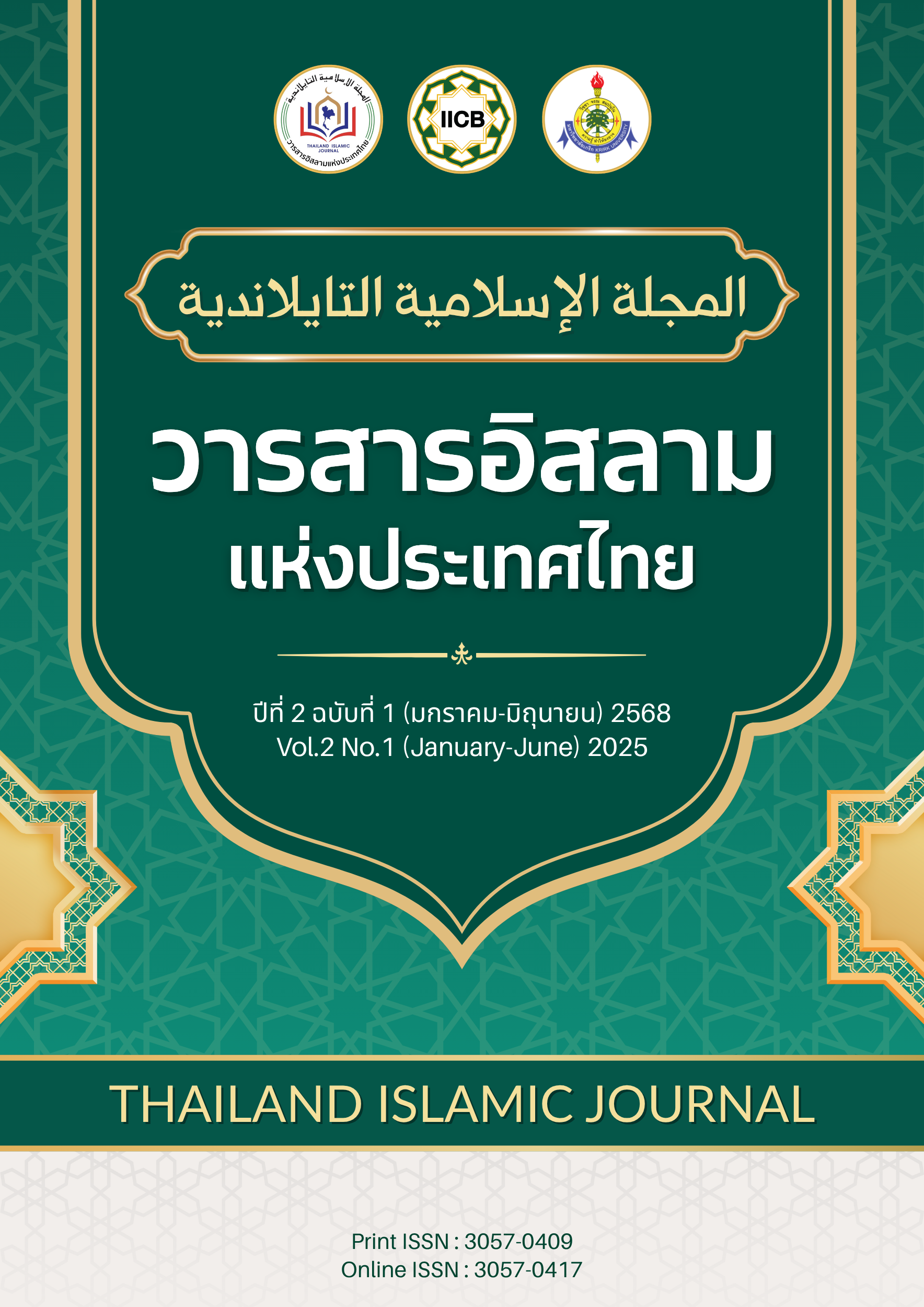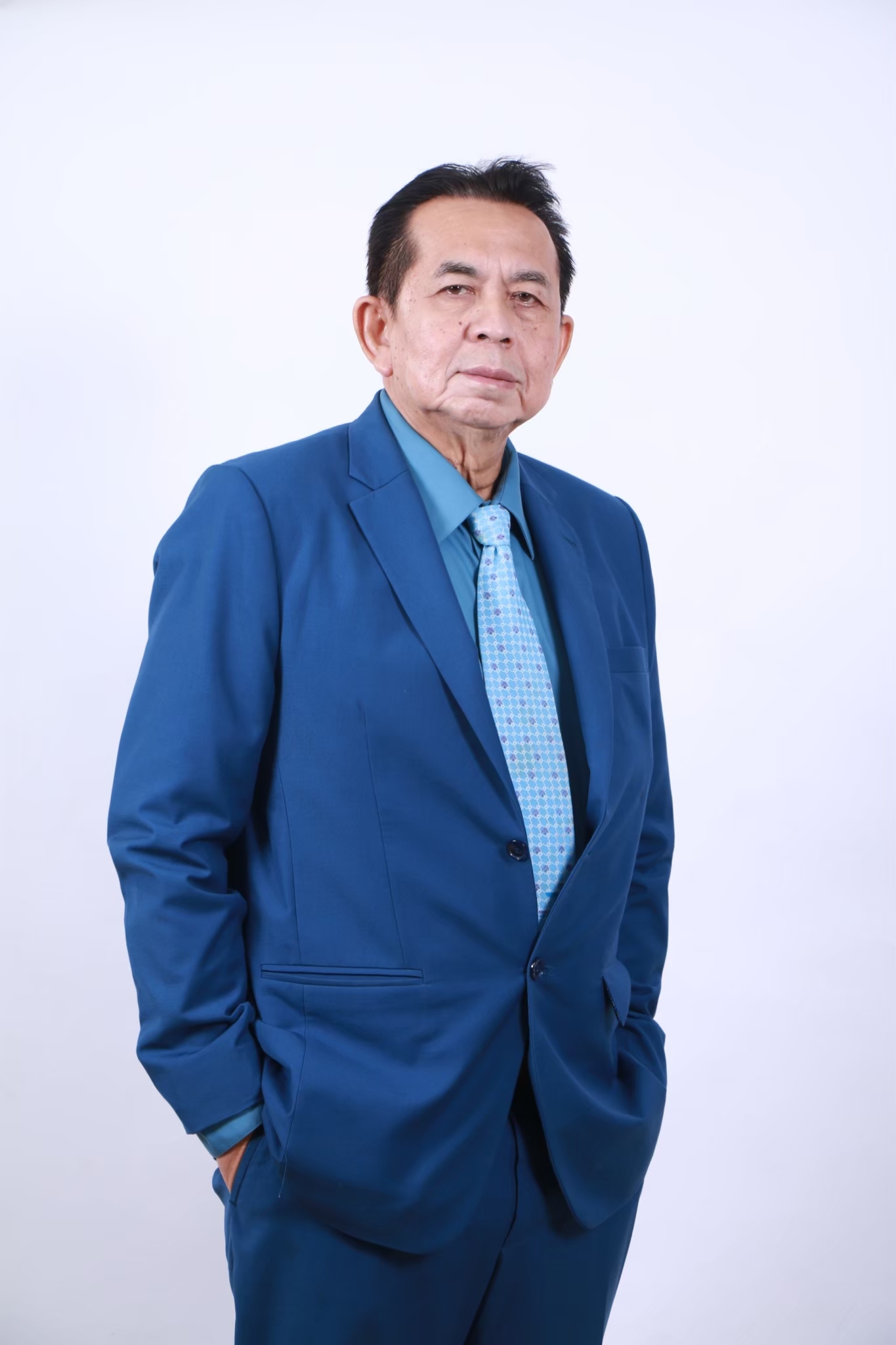Pondok in the City: Biopower and the Everyday Life of Thai Muslim Student
Keywords:
Pondok, Thai Muslim Students, Biopower, Urban Islam, Everyday LifeAbstract
Abstract
When the Pondok-a traditional Islamic boarding school once rooted in rural spaces-moves into the heart of Bangkok, the lives of its students inevitably shift. This qualitative research explores the everyday experiences of students at a Pondok school located in Huai Khwang district, using participant observation, in-depth interviews, and contextual analysis of the school’s social and cultural surroundings. Findings reveal the complexity of being a “Pondok student in the city,” where religious discipline intersects with urban modernity. The school offers structured routines and modern facilities while maintaining strict adherence to Islamic teachings. From pre-dawn prayers to evening religious lessons, students follow tightly scheduled daily routines that gradually shape their behavior-so much so that these routines persist even when no one is watching. This study draws on Michel Foucault’s concept of biopower to explain how the school’s authority is not enforced through overt control, but rather embedded within the students’ everyday habits and internalized discipline. At the same time, many Pondok students in the city are beginning to envision new futures for themselves-not only in the hereafter, but also in the modern world-while holding firmly to their faith.
References
บรรณานุกรม
Jiménez, M. A., & Valle Vázquez, A. M. (2015). Biopower and education: Self-care, subject and truth. Sisyphus — Journal of Education, 3(3), 132–155. https://doi.org/10.25749/sis.10398
จารุณี วงศ์ละคร. (2561). อำนาจชีวะในทัศนะของมิเชล ฟูโกต์. วารสารปณิธาน, 14(1), 135–162. https://so05.tci-thaijo.org/index.php/panidhana/article/view/151883
มูฮัมหมัด เนสะและ. (2564). เอกสารประกอบการสอนวิชา การสอนเตาฮีด. มหาวิทยาลัยราชภัฏยะลา. https://profile.yru.ac.th/storage/academic-documents/October2021/88AuisYPXTxL1o06qF4R.pdf
สุเทพ โชคบุญธิยานนท์. (2552). การใช้ปอเนาะเป็นศูนย์กลางในการสร้างความสมานฉันท์ชุมชน กรณีศึกษา ปอเนาะลาคอมูดอ ตำบลจะแหน อำเภอสะบ้าย้อย จังหวัดสงขลา. กระทรวงการพัฒนาสังคมและความมั่นคงของมนุษย์. https://www.m-society.go.th/ewtadmin/ewt/mso_web/article_attach/728/1035.pdf
อับบัส ยีรัน. (2559). ปัจจัยที่ส่งผลต่อการคงสภาพระบบดั้งเดิมของสถาบันศึกษาปอเนาะในอำเภอจะนะ จังหวัดสงขลา [วิทยานิพนธ์ปริญญามหาบัณฑิต, มหาวิทยาลัยสงขลานครินทร์]. https://dspace.psu.ac.th/handle/2010/11559
อัสสัดลาน, ศ. ฆ. (2535). ฟิกฮฺอย่างง่าย (อ. ยาชะรัด และ ฟ. อับดุลฮาด, ผู้แปล). Islamhouse. https://d1.islamhouse.com/data/th/ih_books/single/th_Resalah_fe_elfiqh_elmuyassar.pdf
อิบรอฮีม ณรงค์รักษาเขต, นุมาน หะยีมะแซ, มูฮามัสสกรี มันยูนุ, & ฮานาฟี วงษ์หลี. (2566). บทบาทของปอเนาะและมัดระซะฮ์ในการธำรงไว้ซึ่งภาษามลายูอักขระญาวีในจังหวัดชายแดนภาคใต้ของประเทศไทย. วารสารอิสลามศึกษา มหาวิทยาลัยสงขลานครินทร์, 14(2), 1-21. https://so03.tci-thaijo.org/index.php/JOIS/article/view/264627
Downloads
Published
How to Cite
Issue
Section
License
Copyright (c) 2025 Internatinal Islamic College Bangkok, Krirk University

This work is licensed under a Creative Commons Attribution-NonCommercial-NoDerivatives 4.0 International License.
วารสารที่ได้รับการตีพิมพ์เป็นลิขสิทธ์ของวิทยาลัยนานาชาติอิสลามกรุงเทพ มหาวิทยาลัยเกริก
ข้อความที่ปรากฎในบทความแต่ละเรื่องในวารสารวิชาการเล่มนี้เป็นความคิดเห็นส่วนตัวของผู้เขียนแต่ละท่านไม่เกี่ยวข้องกับวิทยาลัยนานาชาติอิสลามกรุงเทพ และคณาจารย์ท่านอื่น แต่อย่างใด ความรับผิดชอบองค์ประกอบทั้งหมดของบทความแต่ละเรื่องเป็นของผู้เขียน




